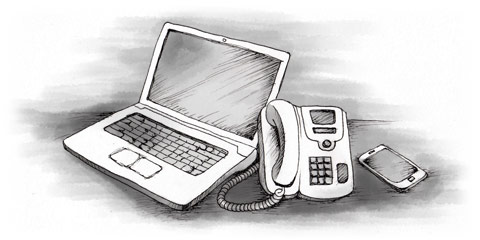There are four main providers in Germany:
- T-Mobil (D1, www.t-mobile.de ): operated by the former state monopoly Deutsche Telekom.
- Vodafone (D2, www.vodafone.de ): Formerly Mannesmann, the D2 network was taken over by Vodafone and is aggressively trying to expand market share.
- E-Plus ( www.eplus.de ): It positions itself as an low-cost provider, offering a wide range of calling plans for people who use their mobiles infrequently. Coverage of the E-Net is not as good as D-Net.
- O2 ( www.o2online.de ): The youngest competitor in the market, O2 is aggressively marketing itself and has rapidly gained market share. It offers a unique 'home zone' plan which allows you to call on fixed-line-tariffs when you're in an area of about 500 meters around your home. Even though these home tariffs are a little more expensive than normal fixed phone rates, O2's Genion tariff can be an attractive option if you don't want to get a fixed line or want a single phone number.
Germany operates on a GSM network, so if you're coming from Europe and many other countries, your current mobile will probably work in Germany. If you are coming from North America or parts of Asia, you will probably have a CDMA phone which will not work. For a GSM phone, you need to check whether your phone is unlocked as some phones are network-specific (e.g. some Orange handsets). If your phone isn't locked, you just need a new SIM card.
As in many European countries, German mobile operators bet heavily on the future of UMTS by paying very high license fees. This new technology enable fast wireless data transfers via mobile and many other services.


